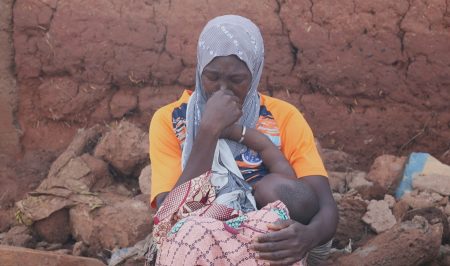In a landmark ruling on December 2, 2023, the Brussels Court of Appeal ordered the Belgian state to compensate five mixed-race women, collectively known as Metis, for systematic abuses they endured as children forcibly taken from their homes in the Belgian Congo. This decision builds on years of legal battles initiated by these plaintiffs, primarily in response to a colonial-era practice that judges have now recognized as a “crime against humanity.” The court’s ruling is significant not only for its compensation of 250,000 euros (around $267,000), but also because it sets a historical precedent regarding the Belgian state’s culpability in the forced abduction of thousands of children of mixed racial heritage during the colonial period, specifically between 1948 and 1961.
The abductions were part of a broader practice in which an estimated 5,000 to 20,000 mixed-race children were targeted by Belgian colonial authorities. Following the brutal reign of King Leopold II, the Belgian state continued its oppressive regime in the Congo until 1960, during which these children were often considered a threat to the white supremacy narrative upheld by colonial powers. Historians note that the existence of these bi-racial children challenged the colonial justification for such oppressive practices. Many of the abducted children faced severe discrimination and were commonly labeled as “children of sin,” a label rooted in the illegitimate circumstances of their birth. Colonial authorities often dismissed these children, either coerced or forcibly removed from their mothers and placed in orphanages or missions, and later in Belgium, where they faced a lack of acceptance and nationality.
The acknowledgment of these injustices has been slow, with the Belgian parliament passing a resolution only in March 2018, which recognized the policy of segregation and abductions and indicated the need for reparations. While a year later, then-Prime Minister Charles Michel publicly apologized for the actions of the state, stating they had stripped the children of their identity and split families apart, there was a clear reluctance to label these actions as forced abductions due to potential legal repercussions and reparations claims. Activists and rights organizations have long called for deeper acknowledgment and redress for the injustices committed against these mixed-race children, but there has been a lack of political will to undertake extensive reparations.
The court case initiated by the five women—Monique Bitu Bingi, Lea Tavares Mujinga, Simone Vandenbroecke Ngalula, Noelle Verbeken, and Marie Jose Loshi—represented a historic first in seeking justice for the victims of the Belgian colonial legacy. They sought to reclaim their identities and demanded compensation along with access to documentation regarding their origins. The plaintiffs spoke openly about their traumatic experiences, highlighting the physical and psychological abuse suffered after being taken from their mothers. Their stories of hardship while living in a mission in Kasai province illustrated the extreme ostracization they endured, often without adequate sustenance, leading to life-long emotional scars.
Throughout the legal proceedings that began in 2021, the Belgian government maintained that these abductions were legal under the practices of the time and argued that significant time had passed, impacting the validity of the claims. However, the plaintiffs’ legal team emphasized the generational trauma inflicted upon these women and their families. The initial court ruling, which found no guilt on the part of the Belgian state, prompted an appeal. This appeal highlighted further testimonies from the plaintiffs, who vocally condemned the ongoing impact of being uprooted from their cultural identities and stressed the necessity of state acknowledgment of their suffering.
Ultimately, the Appeals Court’s decision not only granted the women financial compensation but went further to assert the Belgian state’s culpability in systemic racial segregation and abductions. This verdict is historic and may set a legal precedent for other colonial powers that have similarly neglected their historical responsibilities towards victims of oppressive policies. Experts suggest that there may be an uptick in the number of biological children of mixed-race heritage seeking justice globally in light of this decision, thus emphasizing the broader implications of the court’s ruling for colonial reparative justice. Moreover, a successful resolution and enforcement of this ruling could pave the way toward greater recognition and recompense for the many others affected by colonial policies not only in Belgium but across Europe.










